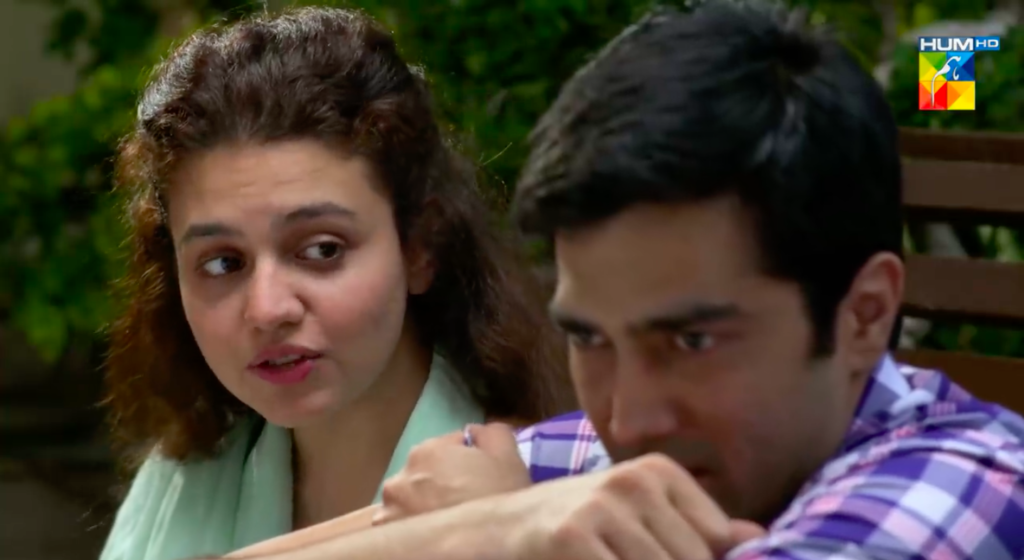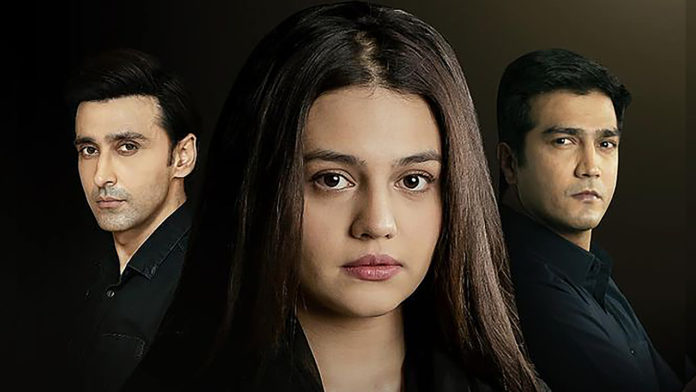Gone are the days when Pakistani dramas only focused on the entertainment factor of a drama. These days, our drama makers are breaking the mold by creating content revolving around taboo topics. Currently, Dunk, Dil Na Umeed Toh Nahi, and Saraab are the dramas that revolve around unusual topics. And now, the audience can add another name to the list – Phaans. Phaans’ teasers were revealed a few months ago but for some reason, it didn’t go on air. The drama premiered last night and the first episode laid the foundation of an unlikely friendship and a distressing journey.
The two families

Phaans introduced the audience to two families; Zeba belongs to a middle-class family comprising of her sister, Farah, and mother, Shakeela. Zeba is shown as a practical individual who believes in hard work while her sister Farah seems to get infatuated by materialistic things. Zeba is engaged to her paternal cousin Hashim, who acts like a typical fiancé trying to control Zeba. Shakeela is a servant and has been working at a wealthy family’s house for years. The wealthy family consists of a married couple Nadia and Siraj, and their three children: Hafsa, Arsala, and Sahil, who has down syndrome.
The three siblings and the mother share a lovely bond where they look out for each other. The father, however, does not have a pleasant relationship with either his wife or his children, especially Sahil, always behaving rigidly towards Sahil. Another major character introduced in the episode was Samad, who is set to marry Hafsa.
The wedding and the twist

The first episode revolved around Hafsa and Samad’s pre-wedding events. Due to the wedding, Nadia had called Shakeela to live in the servants’ quarters so she could help with the house chores and since Shakeela could not leave her daughters alone in her house, she brought them with her to Nadia’s house. During their stay, Zeba and Sahil became friends. Zeba and Samad also engage in a conversation regarding Zeba’s education, much to Hafsa’s dismay, who is always suspicious of Samad. Samad is inspired by Zeba’s ambitions despite the fact she comes from a poor background. It isn’t exactly clear whether Hafsa is wrong to suspect Samad or Samad is, in fact, a flirt.
Another interesting point about the first episode was Nadia and Siraj’s relationship. Apparently, there’s trouble in paradise as Nadia doesn’t entirely trust Siraj and they have had a rocky marriage right from the start. The first episode ended with Zeba going to meet Hashim- who wanted to teach Zeba a ‘lesson’ for not attending his phone calls- at a construction site and someone pulling Zeba by her arm.
First impressions
As far as first episodes go, Phaans did a great job in establishing the leading and the supporting characters. The episode was an hour long but the scenes were short and to the point and the drama doesn’t feel like a drag. The episode did not reveal who exactly is Zeba’s perpetrator since both Siraj and Samad noticed Zeba leaving the house, which was another highlight of the episode.

Regarding the acting in the first episode, Shehzad Shaikh was the main attraction here as he played a man with down syndrome. Shehzad did quite well in some of the scenes while in others, it felt like he overplayed the character. But then again, playing such characters is always a challenge and there’s always room for improvement. Zara Noor Abbas as Zeba was believable and natural. Her real acting challenge, however, will start from the second episode after her character will go through severe trauma, as suggested by the preview of the next episode. Yashma Gill is an excellent performer and it is time she is given a lead role in a drama. Sami Khan, Arjumand Rahim, Zain Afzal, and Ali Tahir had few scenes but they performed well.
Phaans will deal with not one, but two sensitive topics, as revealed by the makers. During the past few years, a lot of dramas have delved deeper into the social stigmas of our society. Unfortunately, most of them have failed while a few of them have managed to create awareness. The audience hopes that Phaans will fall in the latter category.




